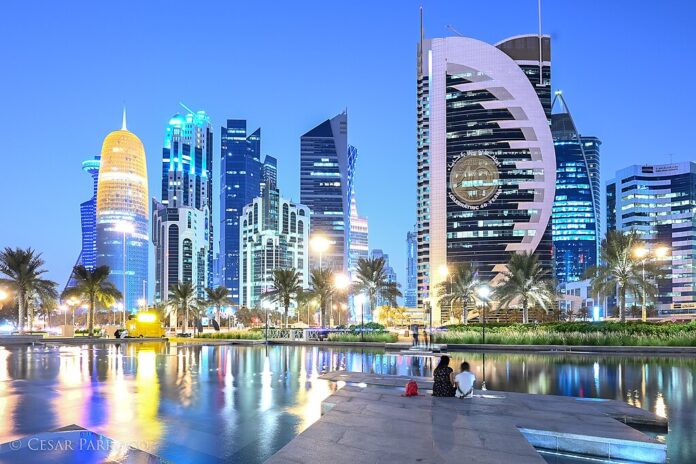Qatar’s non-hydrocarbon private sector maintains momentum, with record employment growth as the nation pushes forward with economic diversification
Qatar’s non-oil economy has held steady in September, despite a slight dip in the country’s Purchasing Managers’ Index (PMI) to 51.7, down from August’s 53.1, according to the Qatar Financial Center’s latest report compiled by S&P Global. The PMI drop, while modest, still reflects ongoing expansion, with any reading above 50 indicating growth.
This performance aligns with Qatar’s National Vision 2030, a strategic initiative to reduce the country’s reliance on hydrocarbon industries and shift focus toward private sector-driven growth. Particularly, the construction sector saw a temporary pause, while manufacturing, services, finance, and retail sectors continued to thrive.
Embed from Getty ImagesYousuf Mohamed Al-Jaida, CEO of QFC Authority, acknowledged that despite the headline PMI decline, several indicators show robust activity. “The non-energy economy continues to evolve positively. A record increase in employment suggests that firms are expanding their capacity to meet growing backlogs,” he remarked.
In September, the workforce in Qatar’s non-energy private sector expanded at a record-breaking pace, surpassing previous peaks from January 2019. This surge in employment corresponds to the increasing demand for goods and services, which boosted businesses’ 12-month outlook to its highest point since March 2023.
Key sectors such as construction, real estate, and tourism have been major contributors to this optimism, alongside a steadily rising population and continued investments. The survey indicated that wages also experienced a substantial rise during the period, further fuelling consumer demand.
Qatar’s financial services industry also saw accelerating growth, with the New Business Index reaching 64.1 in September—up from 62.8 in August—marking the highest increase since August 2022. This highlights the growing demand for financial services in the country, in line with broader economic expansion.
While new business and overall outlook improved, the survey noted that purchasing activity softened slightly. Many firms reported stable inventory levels, balancing out new demand. However, the financial services sector remained a bright spot, recording significant demand growth.
Qatar’s diversification efforts reflect a broader shift to build a resilient economy that thrives beyond its traditional hydrocarbon base. With strategic investments in key sectors and rising private-sector involvement, the nation’s economic outlook remains positive, despite minor fluctuations in indicators like the PMI.
